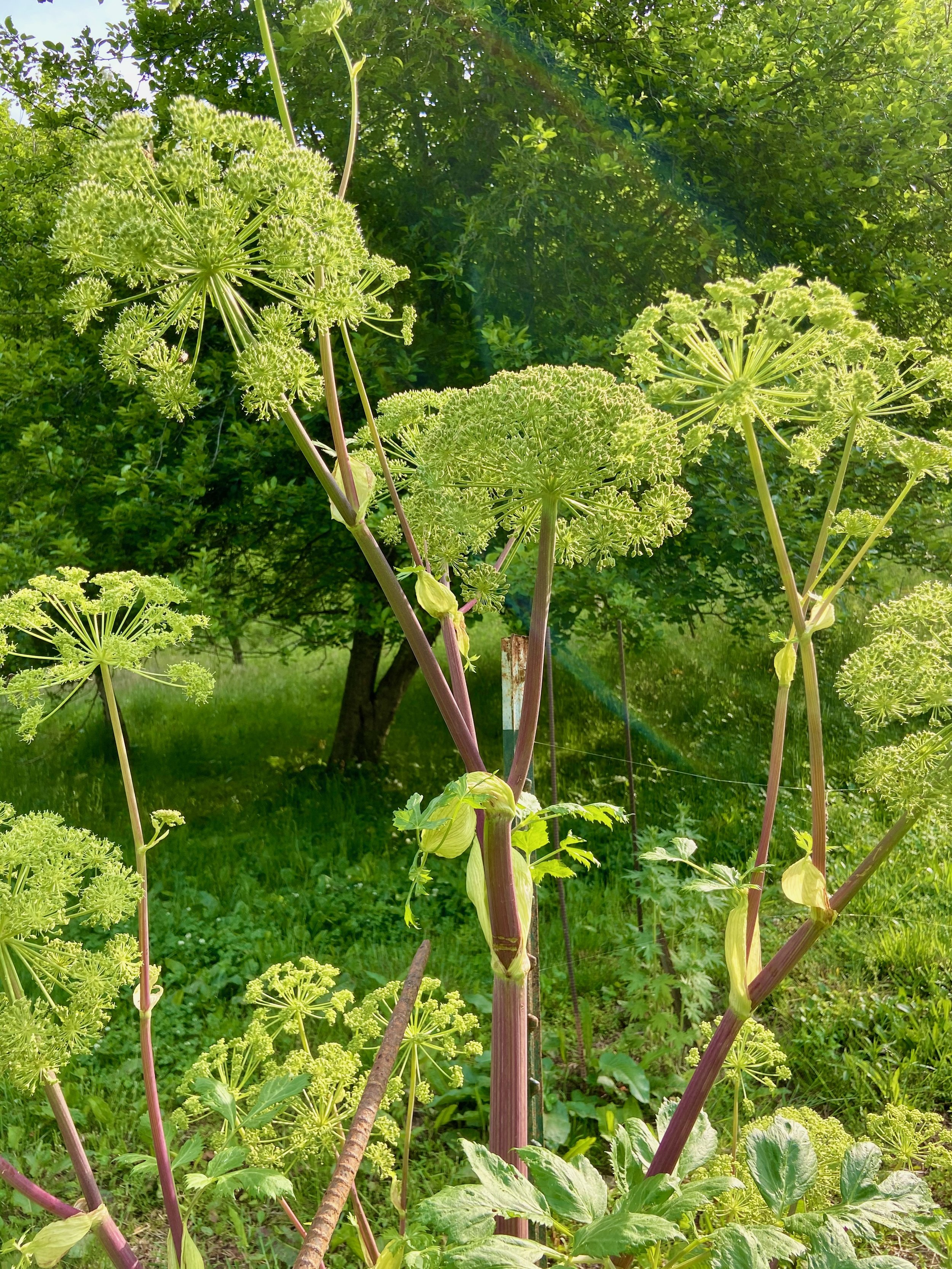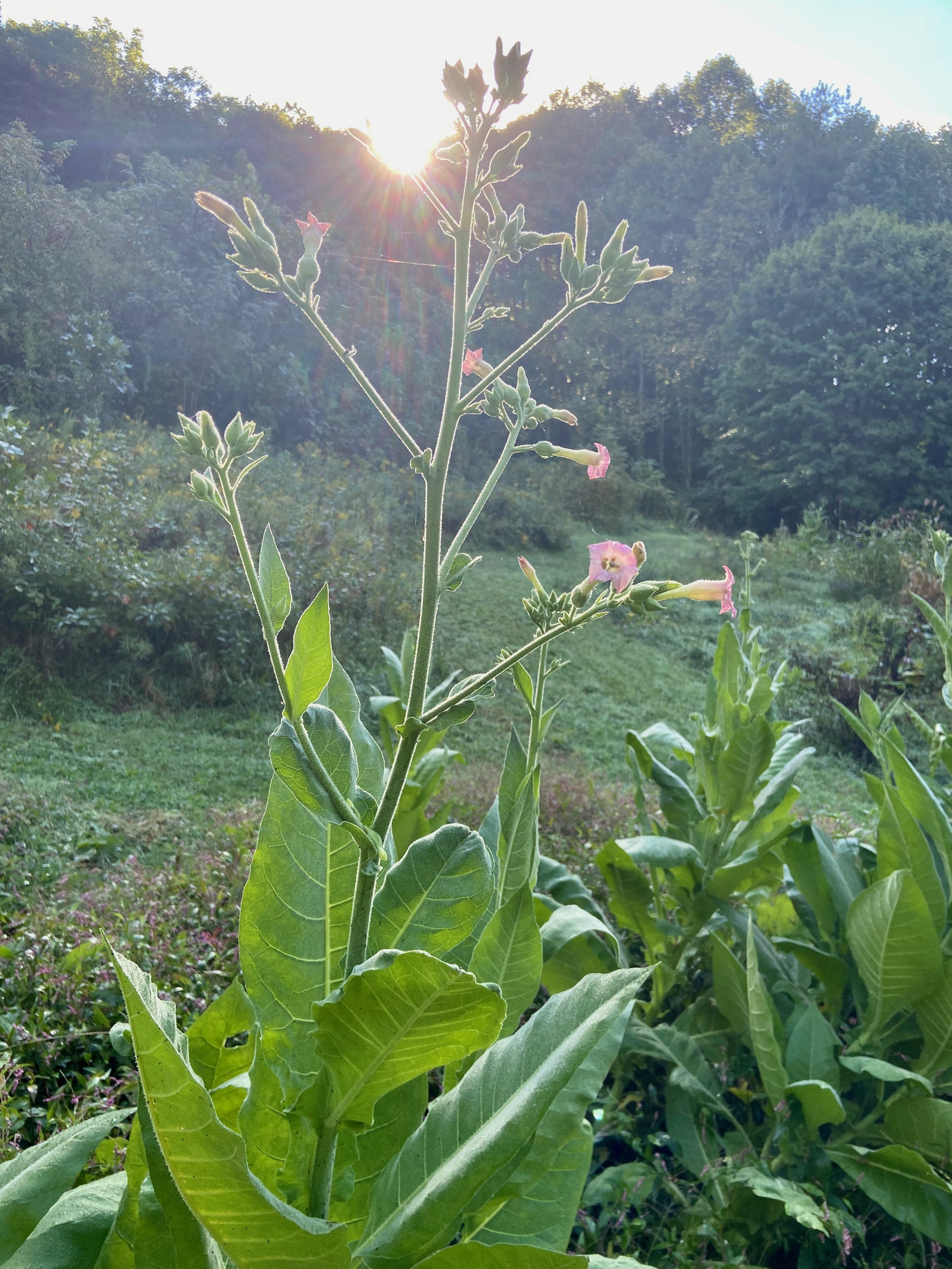Join us in reawakening our wild feminine magic and power as we weave together in re-membrance of our connection to the natural world.
Each time we meet, we’ll begin by communing with a plant ally (often prepared as a tea) in meditative ritual space. Opening this direct line of communication is one of the best ways to learn herbalism and rekindle our ancestral connection to the plants and the earth herself. All plants have a spirit, and most are willing to communicate with us if we are willing to listen!
We’ll continue with a brief exploration of the traditional uses, energetics and biochemistry of the plant we’re communing with, followed by a sharing circle supported by the spirit medicine of the plant. We’ll focus our discussion around topics in the realms of healing ancestral and cultural wounds, resacralizing feminine rites of passage, the intersection of entheogens and the feminine, reclaiming earth-based knowledge and embodying leadership rooted in interconnection.
In our July circle, we’ll engage the medicine of the magical mimosa (Albizia julibrissin) tree, also known as Persian silk tree. In the Chinese materia medica, it’s referred to as the “collective happiness tree” and is traditionally used to uplift the heart, calm the spirit, and as a tonic for grief, loss, depression and anxiety.
In many ways, mimosa seems to be showing up for us here and now as a potent medicine for these times.
Weather permitting, we’ll hold this circle under a blossoming mimosa tree (in the shade) where we’ll co-create a ritual container for connection and sharing. We’ll sip on tea made from her fresh flowers and embark on a guided drum journey with her spirit. In addition, there will be a mimosa flower and bark tincture, as well as a mimosa flower essence, available for you to experience.
We’ll also invite the spirits of tobacco (Nicotiana rustica) and bobinsana (Calliandra angustifolia), an Amazonian plant ally in the mimosa family with a similar flower and some similar traditional associations, to join us and support our work via the sacred indigenous medicine of hapé.
Mimosa is considered invasive (here in Southern Appalachia and in many other places), and this awareness will inform our discussion as we explore the relationships among plants, people and place, and the concept of “belonging.”
The circle will run from 4-6 or 6:30, and then we’ll have a potluck feast and fire. Children are welcome—please just indicate in your registration form that you plan to bring children and their ages so we can plan ahead!
Offered by donation, $22-44 suggested, non-monetary forms of reciprocity are also welcome. Space is limited. Please RSVP to save your spot!
These circles are open to all women—cis, trans & femme folk.
***While many of the plants we'll be working with are mildly psychoactive, we do not work with plants classified as psychedelics in these circles.***
Women and the plant queendom have always been interwoven.
Our ancient female ancestors were deeply connected to the landscape, natural rhythms and plant kin that surrounded them. They were the wise women, gathering and growing medicinal herbs, learning the secrets of their use for health and healing, and collectively maintaining this knowledge for their families and communities. We can thank our lineage of wise women for the simple fact that we are alive! Their knowledge and resourcefulness in using plants to nourish, heal and protect enabled generations of childbirth and survival.
As colonialism spread throughout the world, much of this ancestral knowledge was erased, suppressed and/or exploited. In some places, the women who spoke to the plants, made medicines and gathered with other women in community to share their wisdom—the herbalists, midwives, medicine women and witches—were persecuted in horrific and violent ways. And their sisters, mothers, daughters and friends lived with the fear that they would be next, so they stopped gathering openly.
Women’s ways of knowing, healing and leading were devalued and largely replaced by a patriarchal system built on scarcity, competition and commodification of knowledge.
All of this trauma, fear, numbness and alienation from nature has reverberated through our bodies and wombs for generations, and it shows up today as ancestral wounding that disconnects us from our magic and power. For many women, this trauma shows up as the “witch wound” that keeps us scared from being too visible and the “sister wound”—the conditioning that tells us other women are competition, dangerous and not to be trusted. The sister wound often manifests as insecurity, judgment, comparison, jealousy and fear in relationship to other women. It keeps us disempowered, separated and fighting each other, instead of fighting the larger system of inequality and oppression.
Coming together with other women in circle and communing with the plants are simple, yet powerful ways to heal the wounds of separation and reclaim what has been stolen and forgotten.
Together, we will re-member the ancient ways of relating to each other, to the plants and to all creation.
We’ll re-member how to speak to the plants—our plantcestors—and receive their wisdom, which often comes both through the spirit realm and through the physical effects their biochemical constituent have on our bodies and minds.
The plants know how to nourish and heal. They also know how to adapt to change, how to live in harmony with the forces of nature, and how to reweave us back into interconnection with the love and wisdom of our ancestors.




